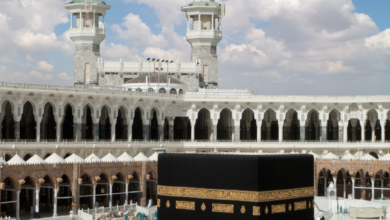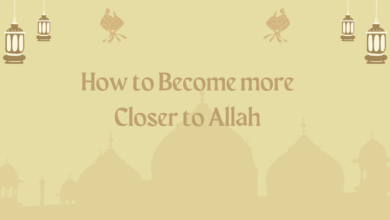About Dreams in Islam
Unlocking the Spiritual Significance: Dreams in Islamic Tradition

About Dreams in Islam
Dreams in Islam are considered a means of communication between individuals and Allah. They are believed to provide guidance, warnings, and spiritual insight.

Introduction
Dreams have always been a source of fascination and intrigue for humans across cultures and religions. In Islam, dreams hold a significant place as they are considered a means of communication between the individual and the spiritual realm. Islamic teachings provide valuable insights into the interpretation and significance of dreams, shedding light on their potential as a source of guidance and inspiration for believers. This article explores the concept of dreams in Islam, their interpretation, and their role in the lives of Muslims.
Dreams as a Divine Channel
In Islam, dreams are believed to be a divine channel of communication between Allah (God) and His servants. The Quran, Islam’s holy book, narrates the story of the Prophet Ibrahim (Abraham), who received a vision in a dream where he was commanded to sacrifice his son. Ibrahim’s willingness to submit to this divine command is a testament to the importance and authenticity of dreams in Islamic tradition.
Also check.
- What is Hell in Islam?
- Why did Islam Spread So Quickly?
- Why Does Allah Test Us?
- What is Gambling in Islam?
- What is Interest in Islam?
- What is a Prophet?
The Prophet Muhammad’s Role
Prophet Muhammad is central to the understanding of dreams in Islam. He is often referred to as the “Seal of the Prophets,” and his life and teachings provide valuable guidance on the interpretation and significance of dreams. Hadiths (sayings and actions of the Prophet) have recorded numerous instances where Muhammad interpreted dreams and guided his followers based on these interpretations.
Prophet Muhammad emphasized that dreams can be categorized into three types:
- True Dreams (Ru’ya Sadiqah): These are dreams that come from Allah and hold a deeper, often symbolic, meaning. True dreams are believed to be a form of divine guidance and are considered a gift to the believer. The Prophet Muhammad said, “A good dream that comes true is from Allah, and a bad dream is from Satan.”
- Confused Dreams: These dreams are a result of the individual’s thoughts, emotions, and daily experiences and may not hold any specific significance.
- Dreams from Satan: These are dreams that aim to confuse or mislead the dreamer. Islamic teachings encourage believers to seek refuge in Allah from Satan’s influence if they experience disturbing or negative dreams.
Interpreting Dreams in Islam
Interpreting dreams in Islam is an intricate art that requires a deep understanding of Islamic teachings and symbolism. While some dreams may be straightforward and easily understood, others are more complex and may require the expertise of scholars or individuals experienced in dream interpretation.
Common symbols and themes in Islamic dream interpretation include:
- Water: Water in dreams is often associated with purification, knowledge, and spirituality.
- Mountains: Mountains symbolize challenges, obstacles, or major life decisions.
- Animals: Animals may represent qualities or characteristics associated with the specific animal. For example, a lion could symbolize strength and courage.
- Flying: Flying in a dream is often seen as a symbol of spiritual ascent or the desire for freedom.
- Falling: Falling in a dream may signify a fear of failure or a need to regain control in one’s life.
- Snakes: Snakes can represent deception or hidden enemies.
- Greenery and Gardens: These symbols often indicate growth, abundance, and spiritual prosperity.
The Role of Dreams in the Lives of Muslims
Dreams play a multifaceted role in the lives of Muslims. They can serve as a source of guidance and comfort, offering insight into life’s challenges and decisions. True dreams are often seen as a sign of Allah’s favor, and believers are encouraged to share them with trustworthy individuals for interpretation.
Additionally, dreams can be a means of self-reflection and spiritual growth. Muslims are encouraged to reflect on their dreams, especially those that leave a lasting impression, and to seek to understand the underlying messages they convey.
Conclusion
Dreams in Islam are far more than mere nighttime experiences; they are a spiritual phenomenon that offers a unique connection between individuals and the divine. Understanding the significance and interpretation of dreams in Islam can provide Muslims with valuable guidance, comfort, and a deeper connection to their faith. As believers continue to seek meaning in their dreams, they may find a pathway to greater spiritual enlightenment and a closer relationship with Allah.

FAQs
What role do dreams play in Islam?
Dreams in Islam are considered a means of communication between individuals and Allah. They are believed to provide guidance, warnings, and spiritual insight.
Are all dreams in Islam considered significant?
No, not all dreams are considered significant. Dreams are categorized into three types: true dreams, confused dreams, and dreams from Satan. True dreams are believed to come from Allah and hold special meaning.
How should Muslims interpret their dreams?
Dream interpretation in Islam can be complex. It often involves understanding symbols and seeking guidance from scholars or individuals experienced in Islamic dream interpretation.
Can dreams offer guidance on major life decisions in Islam?
Yes, dreams are seen as a source of guidance in Islam. They can provide insights into important life decisions and challenges.
What are some common dream symbols in Islamic interpretation?
Common dream symbols include water (symbolizing purification), mountains (representing obstacles), animals (with specific qualities), flying (spiritual ascent), and snakes (deception or hidden enemies), among others.
Should Muslims share their dreams with others?
Muslims are encouraged to share their true dreams with trustworthy individuals for interpretation, especially if the dream leaves a strong impression.
How can dreams contribute to spiritual growth in Islam?
Dreams offer a pathway to self-reflection and spiritual growth. They can help believers better understand themselves, their faith, and their relationship with Allah.
Are there any specific practices or rituals related to dreams in Islam?
There are no specific rituals, but Muslims are encouraged to seek refuge in Allah from Satan’s influence if they experience disturbing or negative dreams.
Can non-Muslims experience true dreams in the Islamic sense?
While Islamic dream interpretation is primarily a concept within Islam, individuals from other faiths or backgrounds can also experience meaningful and spiritually significant dreams.
Is there a connection between dreams and prophethood in Islam?
Yes, dreams are often linked to prophethood in Islam. The Quran narrates stories of prophets receiving divine messages through dreams, emphasizing their significance in religious history.



